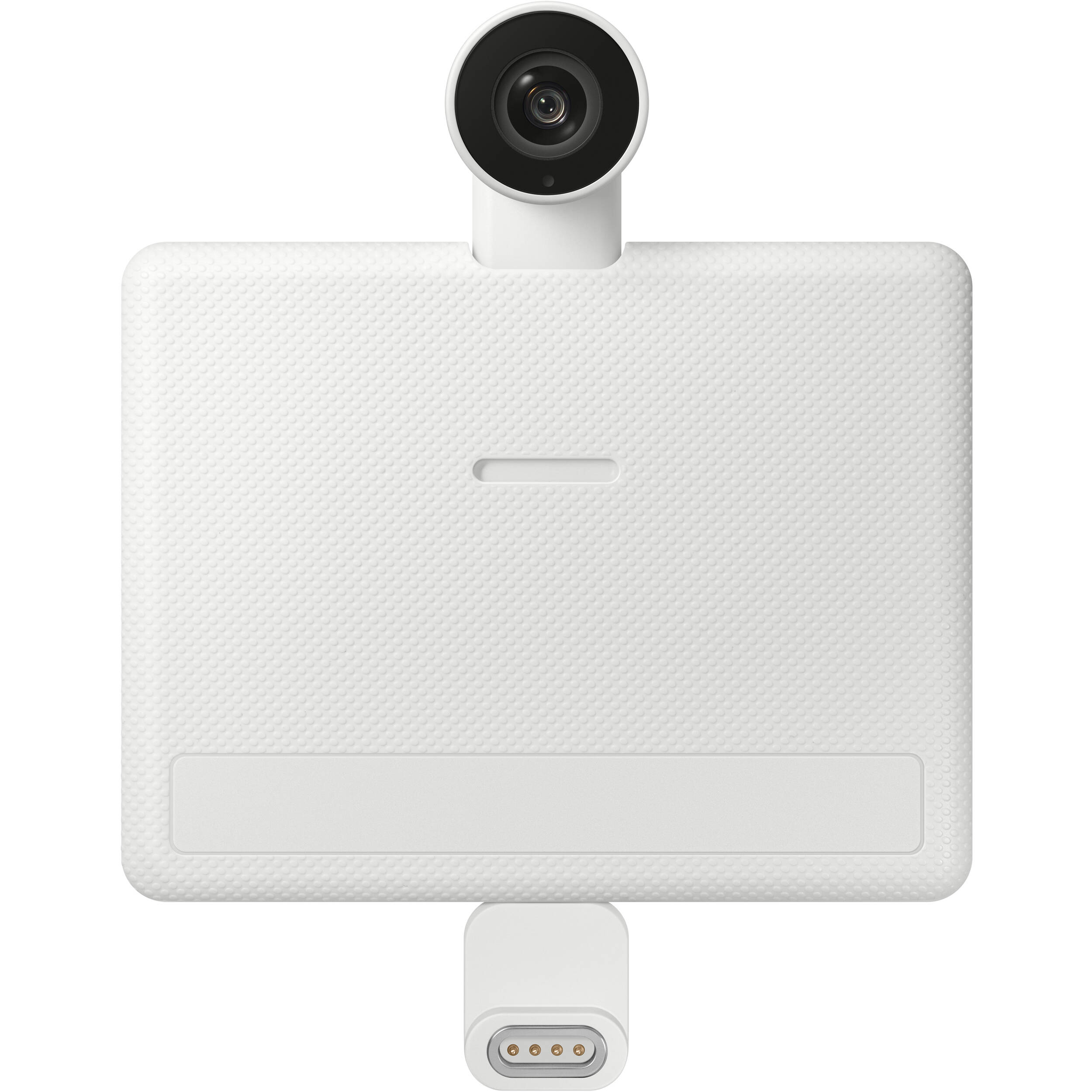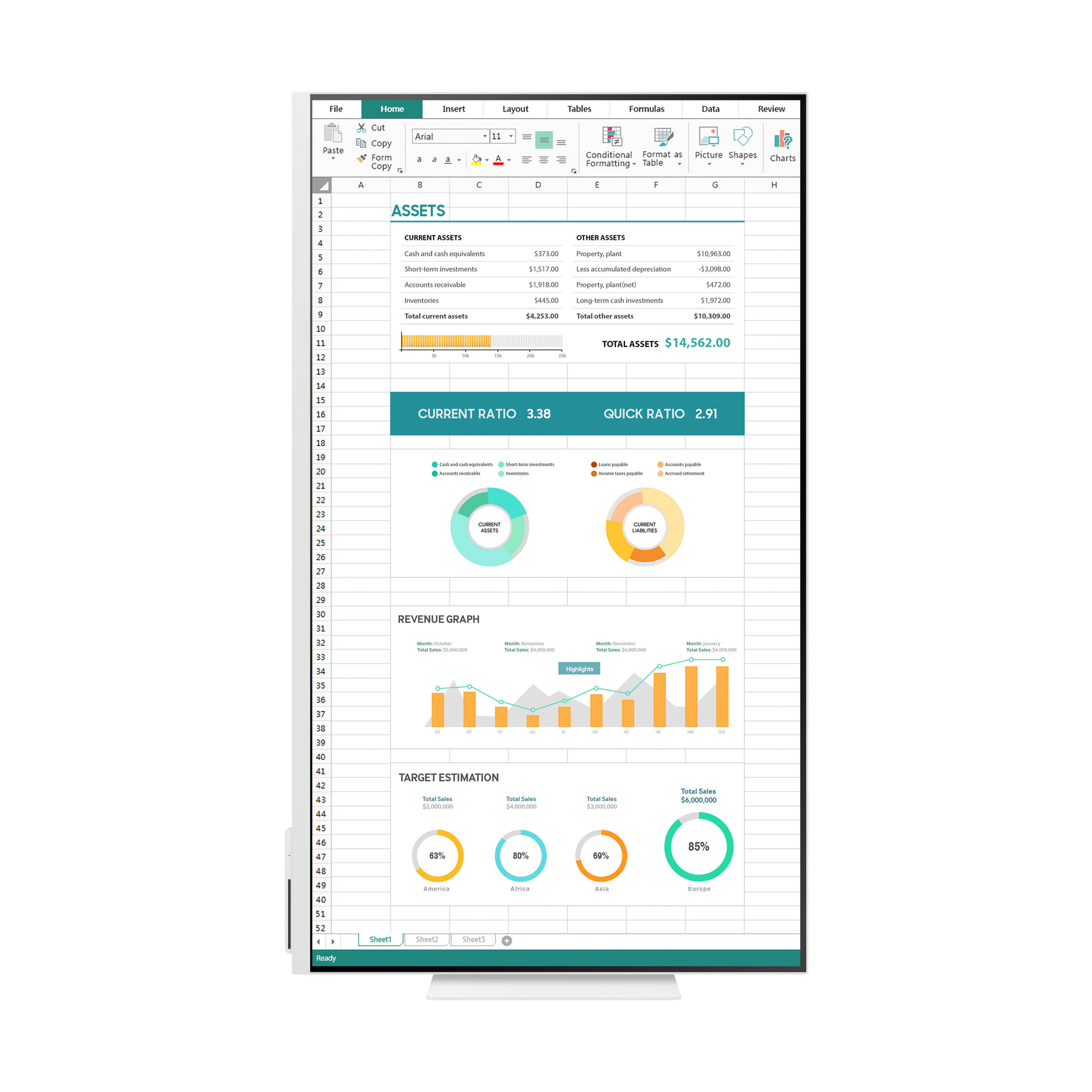Expert’s Rating
Pros
- Competitive price
- 32-inch display with 4K resolution
- Built-in Wi-Fi with support for AirPlay
Cons
- No Ethernet
- Some features require a Samsung account
- No support for DCI-P3
Our Verdict
The low price means that the M8 has a few rough edges, but it’s a great option for home users who want a high-quality display that doesn’t break the bank.
Best Prices Today: Samsung M8 (M80D, 2024)
$549.99
Samsung’s M8 Smart Monitor has been on our list of the Best Mac Monitors ever since it was first launched back in 2022, as it provides an attractive 32-inch monitor with 4K resolution at a far lower price than Apple’s expensive 27-inch Studio Display. The M8 has continued to prove popular since then, and Samsung recently launched an updated version, which also goes by the full model number of ‘M80D’ to indicate that this is the monitor’s fourth-generation update (like the Enterprise D in Star Trek). However, Samsung is still selling the previous M80C model, while some online stores even have the older M80B as well, so make sure you check those model numbers before buying.
The glass panel that provides the main display hasn’t changed much, still providing 4K resolution with 400 nits brightness, but the M80D model updates a number of other features to ensure that it continues to provide excellent value for money at just $549.99/£529.
See how the Samsung M8 (2024, M80D) compares to other models in our round-up of the Best Mac monitors.
Admittedly, the low cost of the display means that there are some compromises, and the build quality of the M8 does seem a little rough and ready at times. The monitor comes out of the box in three parts that have to be assembled by hand with the help of a screwdriver, and the plastic casing used for the display and the detachable 1080p webcam feels a little flimsy. But this isn’t a mobile device that you’re going to carry around in a backpack, and the M8 will be fine for general day-to-day use when it’s sitting on your desk at home.
It also manages to include quite a few features that the more expensive Apple Studio Display lacks, starting with a versatile stand that allows you to adjust the height – for which Apple charges an extra $400/£400–and also to tilt the screen and even pivot (rotate) the screen into the upright portrait position. There’s even a little solar panel on the handheld remote control that allows you to recharge it without having to plug it in via USB.
As mentioned, the screen provides 4K resolution with 400nits brightness, which isn’t quite as bright as the 500nits on my MacBook Pro, but I found it perfectly adequate for watching video or browsing the web even when it was set to just 80% of maximum brightness. The M8 is primarily designed for home users or people who work from home, and it supports HDR content and 99% of the sRGB color standard, which will be accurate enough to handle basic graphics work, photo-editing and presentations. However, professional photographers or video editors who require the more precise DCI-P3 standard will need to look at more expensive alternatives.
Somewhat oddly, the M80D model has a different set of connectors, with one USB-C port, one HDMI and two USB-A ports, whereas previous models that we’ve tested had two USB-C and one HDMI. Some people might miss that extra USB-C port, but the M80D still supports Bluetooth for connecting additional peripherals, along with Wi-Fi and AirPlay for Apple devices. This means that you can use AirPlay to stream audio to the M8’s speakers or even mirror the display from your Mac or iPad to the M8 without having to use a cable at all (although a cable connection will be better for video mirroring, unless you have a really fast network). Unfortunately, you do need to create a Samsung account in order to use some features–including AirPlay–which is both tedious and annoying as you inevitably have to accept Samsung’s terms and conditions for collecting information as you use the monitor.
The reason for this is that the M8 can be used as more than just a basic computer monitor. Like all of Samsung’s Smart Monitor range it has a built-in Entertainment Hub, which includes apps for Netflix, YouTube and other streaming services (our review unit even included a three-month free subscription for Apple TV+ – although this offer was only available for first-time subscribers). You can connect to the Xbox gaming service and there’s a web browser as well, which you can also control by using Bluetooth or USB to connect a mouse and keyboard.
There are some functions that aren’t available to Mac users, such as the ability to pair the display with a Samsung Galaxy Watch in order to monitor your fitness data, and there’s an Easy Settings app that is only available for Windows users that provides additional controls for screen layout and window management. Samsung could also do more to make the M8’s on-screen menus and controls more straightforward, as it sometimes takes a while to wade through multiple menus to find the specific features you’re looking for. Even so, it’s impressive that an affordable monitor such as this is able to include so many useful features, and the M8 remains a good option for home users who want a high-quality 4K display at a competitive price.
Should you buy the Samsung M8 Smart Monitor (M80D, 2024)?
The build quality isn’t up to Apple standards, and the on-screen menu system is a bit untidy. However, the M8 provides an affordable and attractive 4K display for home users, and even outguns Apple’s more expensive Studio display with its adjustable stand, built-in apps and other features.
Source : Macworld











